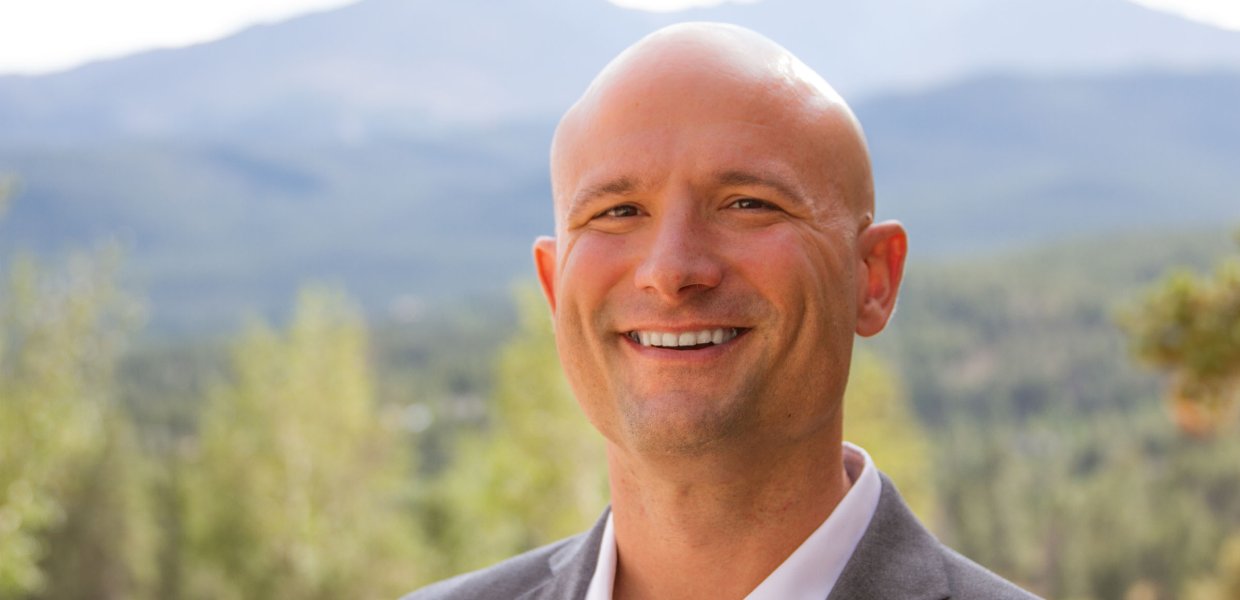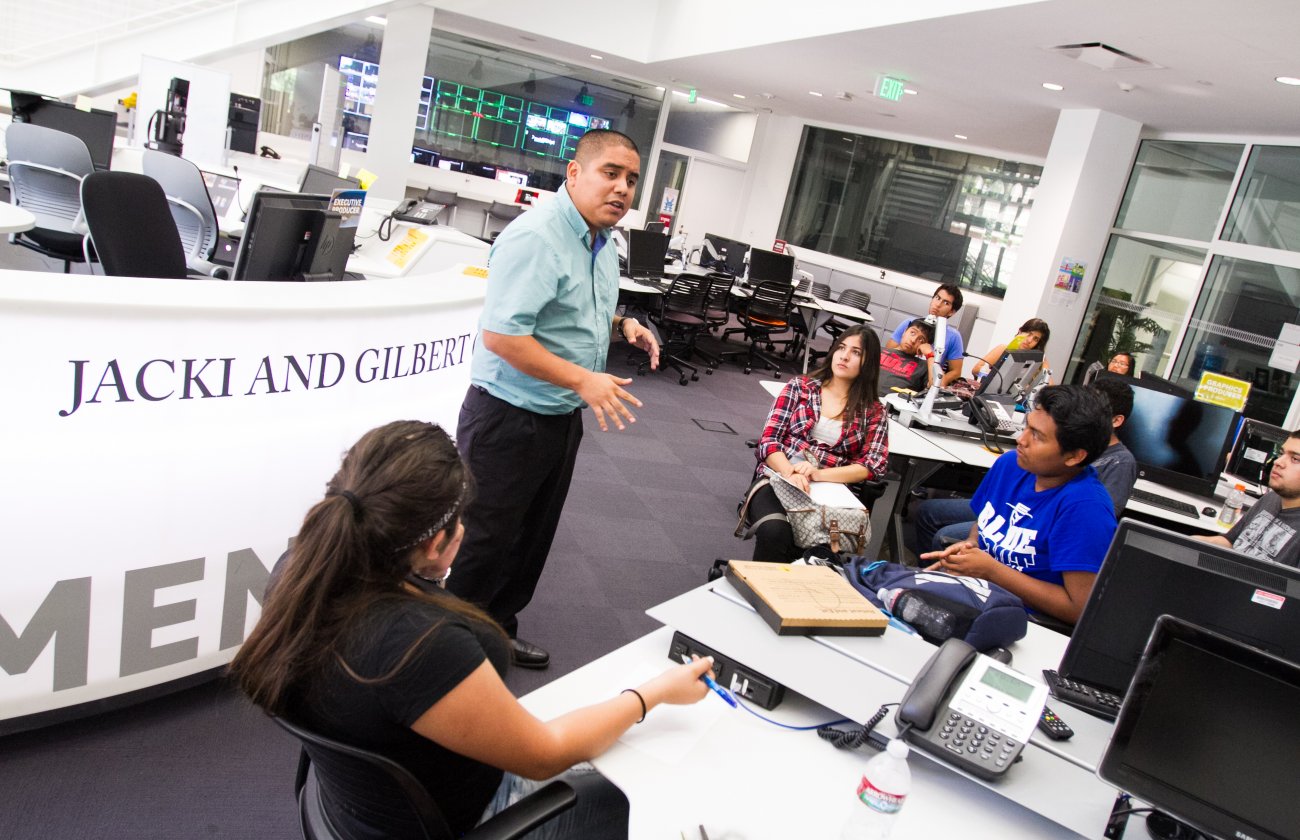Inside the classrooms at USC Annenberg, students are the ones typically tasked with answering the hard hitting questions. "Five Minutes with..." turns the table on faculty and staff to ask them the hard questions.
Adjunct professor Keith Plocek is teaching the first-ever surf journalism class at Annenberg this semester. But it's not all fun on the beach. Plocek hopes the course will teach students, which also includes non-majors, how to tell stories through digital and multimedia approaches. The class, at the intersection of environmental and sports journalism, touches upon interesting angles of telling the story, including community reporting, gender representation in surf media and more. It's both fun and informative.
Plocek shared a few thoughts with us about where his class is headed and which journalist he wants to come guest speak this semester.
Can you tell me about the new class you’re teaching, JOUR 499: Shoot the Curl -- Digital Storytelling and Surf Journalism?
The students and I are exploring new ways to cover surfing. We’re trying to innovate. If you look at coverage of surfing in the mainstream media, it’s full of cliches, borrowing stereotypes from "Point Break," "Apocalypse Now" and "Fast Times at Ridgemont High." We’re trying to break free from that. Which doesn’t mean we want to copy surf-specific publications. Those magazines often present a stylized and sanitized version of the pastime, which is very appealing to the gear companies that advertise in those same pages. We’re going for something new, and we’re incorporating as much cutting-edge technology as we can get our hands on.
What made you want to teach a surf journalism class?
Not to sound all like Liam Neeson in "Taken," but I have a very particular set of skills. I love digital storytelling, especially when I get to play around with emerging technology like GoPros and drones. For the past few years I’ve also been an avid surfer. When you add all that to my experience writing longform features, it was basically a no-brainer.
How long have you been surfing yourself and what attracted you to the sport?
I grew up in Houston, Texas, and we used to go down to the beach fairly regularly, but honestly I was just posturing more than anything. It wasn’t until I moved to Venice five years ago that I really got into surfing. The feeling of riding a wave can’t be beat, but that is such a small part of the overall experience. Even really good surfers only spend a couple minutes max standing on their boards, even on exceptional days. But there are so many ritualistic aspects I enjoy too. Waxing the board. Paddling out. Duck-diving under waves. Bobbing in the water. Waiting for the moment.
How do you think surfing can be used to teach digital storytelling?
A big part of digital storytelling is visual, and surfing is gorgeous. The subject matter is perfect for a multimedia approach, but students still need to know how to frame a shot, how to tell a story. Something that especially excites me is how many non-majors we have in the class. This might be the only journalism course they’ll ever take. They’ve come for the surfing, but while they’re here you can be sure they’ll be learning about reporting, editing and fact-checking, as well as basic journalistic principles like speaking truth to power.
It might be a misconception but this class isn’t exactly spending its whole time at the beach right?
Ha! Not quite. In many ways, this class is about community reporting. I’ve assigned the students to cover El Porto, down in Manhattan Beach, and that means a lot more than just interviewing people in wetsuits. There are environmentalists, politicians, lifeguards, restaurateurs, activists -- it’s a whole community. Of course the students are spending some time on the sand and in the water, but we have lectures and readings on a variety of topics, including gender representation in surf media, the relationship between surf magazines and advertisers, and how surf tourism often takes on shades of neocolonialism. I’m especially interested in that last topic, as I’ve done quite a bit of surf travel myself, and I’ve seen what happens when thousands of surfers take over small coastal communities. My master’s in Latin American Studies helps inform my perspective there.
Which category would you place surf journalism in, sports journalism or environmental journalism? Or both?
Definitely both. Surfing is a $130 billion a year industry that touches 162 countries. There are countless angles for in-depth stories, from sports to the environment to business to technology to music to health to politics. I think the pastime should be approached from an interdisciplinary perspective, and I’m encouraging the students to do just that.
What’s the most interesting class session you’ve had so far in the semester? What has been the students’ reactions and thoughts thus far in the course?
We’ve already had a lot of great guest speakers, including Zach Weisberg, the founder of The Inertia, and Sachi Cunningham, a photographer and videographer whose work has appeared in The New York Times, the L.A. Times and Surfer. The students seem really into the speakers. Every session has gone longer than expected. We even had a drone guy, Art Khachatourov, visit the class, and that was really fun. The students are already bringing back great work from the beach, and one of them already nabbed an internship with The Inertia. She just told me that this week, and I was beaming.
Before this class, are there any recent examples of the world of journalism and surfing intersecting in such a way?
There are plenty of writers who’ve taken critical and literary looks at surfing, including Daniel Duane, Matt Warshaw, Steve Barilotti and Scott Laderman. But I think William Finnegan’s 2015 memoir, "Barbarian Days," really cleared the path for this course. Finnegan is a staff writer for The New Yorker, and he wrote a couple great articles for the magazine in 1992 about San Francisco’s surfing scene. His memoir won a Pulitzer last year, giving surf journalism a big credibility boost. I actually tried to contact Finnegan about guest-speaking, but I’m not sure he got the message. Maybe he’ll read this interview and sign up for next year. Mr. Finnegan, drop me a line! We’d love to have you.









